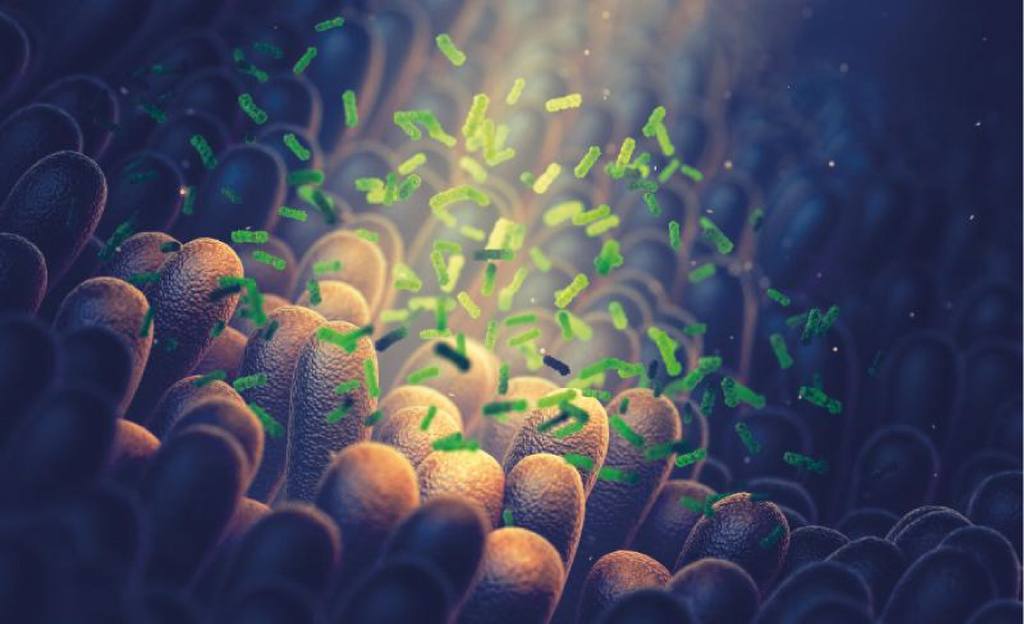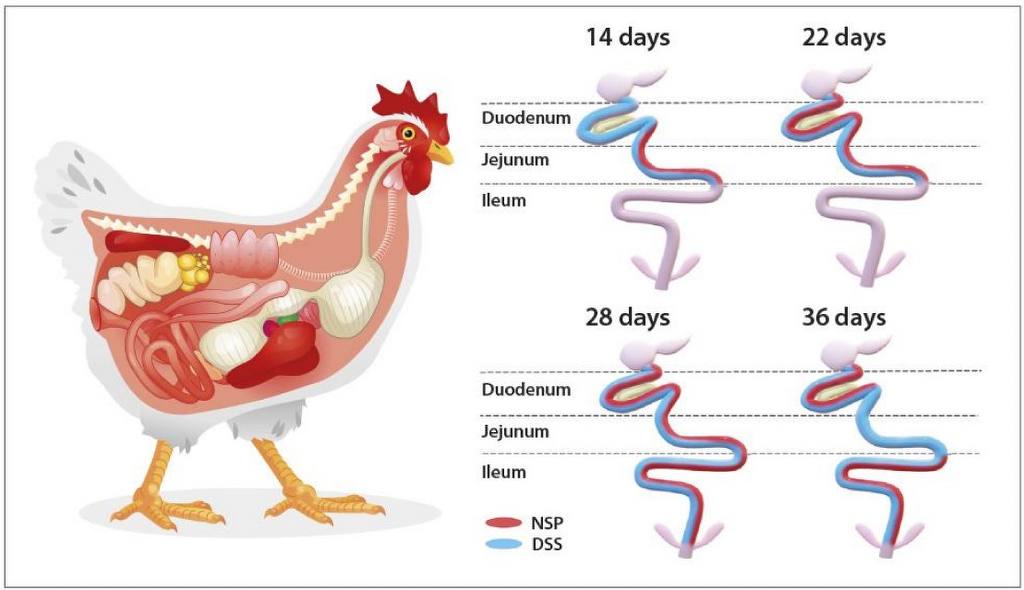For the modern producer, chronic low-grade intestinal inflammation has a negative impact on the productivity of the operation. Often unseen clinically, but definitely felt economically, it impairs the animals’ ability to absorb nutrients, grow and reach their genetic potential.
 Dr. Alireza Khadem, R&D Manager in Innovad believes that antibiotics used as growth promoters (AGPs) are not only successful at controlling enteropathogens and sub-clinical disease but that they are also effective against chronic low-grade intestinal inflammation. The drive to remove AGPs has led to a plethora of solutions that target pathogens, and to certain extent subclinical disease, but managing chronic low-grade intestinal inflammation has been elusive to prove, until now.
Dr. Alireza Khadem, R&D Manager in Innovad believes that antibiotics used as growth promoters (AGPs) are not only successful at controlling enteropathogens and sub-clinical disease but that they are also effective against chronic low-grade intestinal inflammation. The drive to remove AGPs has led to a plethora of solutions that target pathogens, and to certain extent subclinical disease, but managing chronic low-grade intestinal inflammation has been elusive to prove, until now.
Innovad is proud in performing cutting-edge research on this important topic of chronic, low-grade, intestinal inflammation in partnership with top institutes and researchers in the field such as the university of Texas A&M and Dr. Mike Kogut from USDA.
The recent increase in worldwide non-AGP animal production is challenging the industry in management, health, and animal welfare due to the increase of enteric and systemic diseases, and chronic low-grade intestinal inflammation. Therefore, the reduction of AGP usage raises the importance of understanding better intestinal health and the need to apply new practices and interventions for its improvement.
‘Although chronic intestinal inflammation can be induced by several factors, diet is the main cause, since some feed ingredients are potent stimulators of the immune response’ says Dr. Christos Gougoulias, Director of Innovation in Innovad.
The novel findings of our joint research entitled ‘Novel Models for Chronic Intestinal Inflammation in Chickens: Intestinal Inflammation Pattern and Biomarkers’ have recently been published in the Journal ‘Frontiers in Immunology’, the 5th most cited Immunology journal in the world. It is also the 1st most cited open-access journal in Immunology.
Gabriela Cardoso, PhD candidate at Texas A&M said: ‘The results of our most recent paper allowed us to build a better understanding of intestinal inflammation using broilers as a model and identify two novel non-invasive biomarkers of gut inflammation. These findings were only possible through the development of two in vivo models of chronic intestinal inflammation – a chemical model using dextran sodium sulfate (DSS) and a dietary model using a high non-starch polysaccharide diet (NSP). In other words, two novel ways to trigger chronic gut inflammation in broilers.’
More importantly, using these two models we discovered for the first time that chicken intestinal chronic inflammation evolves in a spatial and temporal pattern, with the duodenum and jejunum affected early (at 14 days of age) whereas, the ileum was compromised at a later stage (by 28-d). ‘This finding is of particular importance to the industry when designing functional technologies, as the characteristics of the development of chronic intestinal inflammation in broilers should not be ignored’ said Dr. Mike Kogut, USDA.
Moreover, our joint research identified calprotectin as a potential biomarker in blood and faeces to monitor chronic gut inflammation in broiler chickens. This is an important finding as Christos Gougoulias, Director of Innovations adds, ‘The industry is constantly looking for tools to measure gut health in order to evaluate performance and decide when to use functional in-feed technologies or medication. Ideally, samples should be easy to collect and be minimally invasive, while providing a rapid answer where they are needed – on the farm’.
‘Overall, the outcomes of this research will enable us to develop precise novel in-feed technologies to address the characteristics of chronic intestinal inflammation in intensively reared animals while, the biomarkers will hopefully allow us to develop on-farm diagnostics for the detection of low-grade intestinal inflammation in intensive poultry farming’ commented Jason Lorjé (DVM), Marketing Director in Innovad.
Dr. Christos Gougoulias added: ‘This is just the beginning. Innovad recognizing the negative impact of chronic, low-grade, intestinal inflammation in animal performance, has developed its own Research Program to better understand and tackle the chronic inflammation phenomenon in modern production’. To this end, we have recently validated a novel model of chronic gut inflammation under real farming conditions, adopted successfully Lumance® (our Performance and Gut Health Optimiser) to address the animal losses and studied the mechanisms involved both at the gut as well as the systemic level from a cytoprotective, anti-oxidant, anti-inflammatory and immune response perspective’ explained Dr. Alireza Khadem, R&D Manager.
We are very proud that our novel findings have been accepted for an oral presentation at the prestigious Symposium on Gut Health in Production of Food Animals held October 31–November 3, 2021, in St. Louis, Missouri, USA’ said Dr. Christos Gougoulias, Director of Innovation in Innovad. ‘In fact, this designates a new era on Gut Health for us and more exciting research is underway – stay tuned’.
 Agrinews24 কৃষির সাথে, কৃষকের পাশে
Agrinews24 কৃষির সাথে, কৃষকের পাশে





















